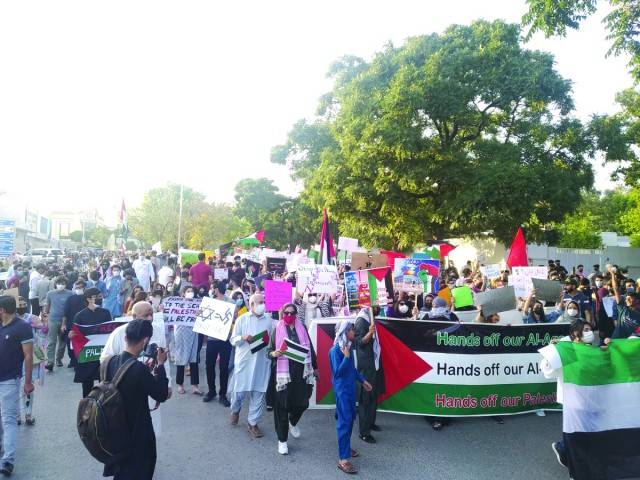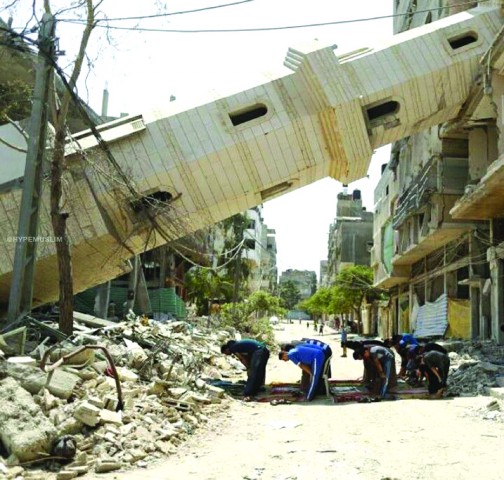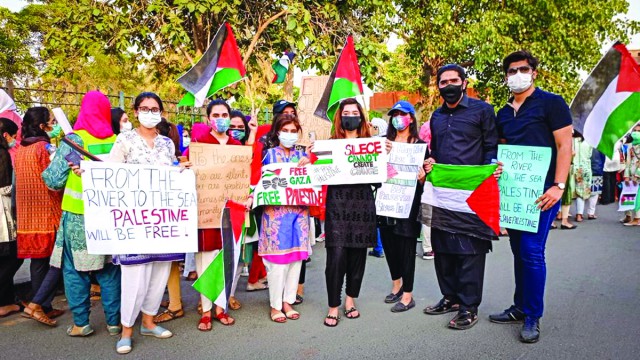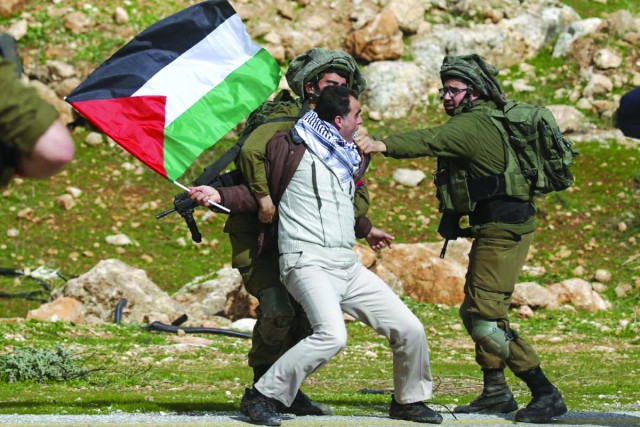
In this past week, we have all understood once again that it is simply not enough to only watch. This cannot be a burden that the Palestinian people bear alone. We, the rest of the world, must support them, and be in solidarity with the Palestinian cause. And solidarity is not a passive state of being; it is a ringing call to action.

The enemy may defeat Gaza. (The stormy sea might overwhelm a small island.)
They might cut down all her trees.
They might break her bones.
They might plant their tanks in the bellies of her women and children, or they might toss her into the sand, into the sea, into blood.
But:
Gaza will not repeat the lies.
Gaza will not say yes to the conquerors.
And she will continue to erupt.
It is not death, and it is not suicide, it is Gaza’s way of announcing she is worthy of life.

These words by Mahmoud Darwish have stayed with me since 2010, when I first encountered this text, translated into English from the Arabic, on Gaza. They remain heartbreakingly relevant today, as they have been for many years before, having originally been published in 1973. I write this, following the 73rd Nakba, since 1948 when the state of Israel was imposed upon Palestinian land, as an attempt to think through what solidarity can look like.
In recent years, there have been several voices clamouring for a normalization of relations between Pakistan and Israel. The Pakistani state must ask itself what that would mean. If we profess solidarity with the Palestinian cause, can we in good faith recognize their oppressor as legitimate?
How can Pakistan and Pakistanis be in solidarity with Palestine?
First things first, solidarity is not charity. It extends across horizontal planes, and does not trickle down vertical slopes. It means respecting the position, the beliefs, the desires and the leadership of the Palestinian people. It means fighting with, next to, often under, and always behind a cause, never trying to co-opt it or lead it.

The call for Boycott, Divestment and Sanctions (BDS) must be upheld in Pakistan. All products from Israel must be boycotted. Being aware of the interlinked and convoluted state of global economic flows, the BDS movement focuses its attention on a small number of companies and products for maximum impact. In Pakistan, this boycott can be applicable to Caterpillar bulldozers, “which are regularly used in the demolition of Palestinian homes and farms and Israel’s massacres in Gaza.” Next is Hewlett Packard (HP) that helps run the ID system that Israel uses to restrict the movement of Palestinian people, as well as Hewlett Packard Enterprise (HPE), which maintains the Israeli police’s data center, remaining complicit in Israeli apartheid and settler colonialism. Intel, operates its plants at the site of former Palestinian villages Iraq al-Manshiya and Al-Faluja. Additionally, Motorola has been tagged as providing surveillance equipment used around Israeli settlements, along the Israeli separation wall, and along the Israel-Gaza border. Proctor & Gamble, which produces Pampers, is a big client for an Israeli company (Avgol Nonwoven Industries) supplying diaper products. P&G accounts for nearly half of the company’s sales. On the boycott list are also brands such as Victoria’s Secret, which established its headquarters on land appropriated from Palestinians in Galilee, and Puma, which sponsors the Israel Football Association, which includes teams in Israel’s illegal settlements on occupied Palestinian land. There is a longer list, which can be accessed through the extensive research compiled by Who Profits? and the BDS movement online
The Pakistani state needs to acknowledge and condemn Zia ul Haq’s role during Black September in 1970, where he was crucially involved on the Jordanian side against PLO and the fedayeen. The Pakistani state should take up, and reinforce the Palestinian call for sanctions and arms embargo on Israel at international platforms such as the UN. Both government and private organizations can and should work together in offering relief assistance to Palestinians in these dark times, and beyond as an act of solidarity.
We should remember that the Palestinian battles are waged against the continued occupation of Palestinian land by Israel as guided by Zionism, and not against Judaism. It is no coincidence that across different parts of the world, there is often a significant presence of Orthodox Jews at Palestine solidarity protests
Pakistan’s insistence on not recognizing Israel is a symbolic move. And yet, one that was undermined by secret arms deals during the 1980s where Israel was supplying weapons to Pakistan. The Pakistani intelligence apparatus and Mossad have long established links with one another, sharing intelligence. In recent years, there have been several voices clamouring for a normalization of relations between Pakistan and Israel. The Pakistani state must ask itself what that would mean. If we profess solidarity with the Palestinian cause, can we in good faith recognize their oppressor as legitimate? It would mean validating Israel as a nation while knowing that it remains unwilling to declare its borders, engaged in a long-drawn out battle to engorge itself while shrinking Palestinian land, and expelling Palestinian people.

And right now, we must protest loudly, repeatedly, vociferously – we must gather in public places and proclaim our support for Palestine, and our condemnation of Israel. We need to complicate and disentangle our understanding of this as a Muslims vs. Jews conflict, and to educate ourselves on the nuances of this occupation including the destructive roles played by European nation-states and British colonialism, and the ongoing financial support by the US. Religion is one of the factors in this conflict, but is also often used as a smokescreen behind which the real dispute – the one over land – remains hidden. We should remember that the Palestinian battles are waged against the continued occupation of Palestinian land by Israel as guided by Zionism, and not against Judaism. It is no coincidence that across different parts of the world, there is often a significant presence of Orthodox Jews at Palestine solidarity protests. We must also not forget the betrayals faced by the Palestinian people by everyone including their own leadership, and seek to support them in charting a new way forward.
Hira Nabi was part of Students for Justice in Palestine at Hampshire College, which led a successful divestment campaign from Israeli occupation of Palestine in 2009
References
1.) Darwish, Mahmoud, trans. Ibrahim Muhawi, Journal of an Ordinary Grief. Silence for the Sake of Gaza, Archipelago Books, 2010
2.) Information on BDS: https://bdsmovement.net/get-involved/what-to-boycott
3.) Boycott list from Ethical Consumer: https://www.ethicalconsumer.org/ethicalcampaigns/boycotts
4.) “10 brands you’ll have to give up if you’re boycotting Israel” - https://www.csmonitor.com/World/2014/0130/10-brands-you-ll-have-to-give-up-if-you-re-boycotting-Israel/Pampers
5.) “The forgotten legacy of Black September, 50 years on” - https://tribune.com.pk/article/97173/the-forgotten-legacy-of-black-september-50-years-on

